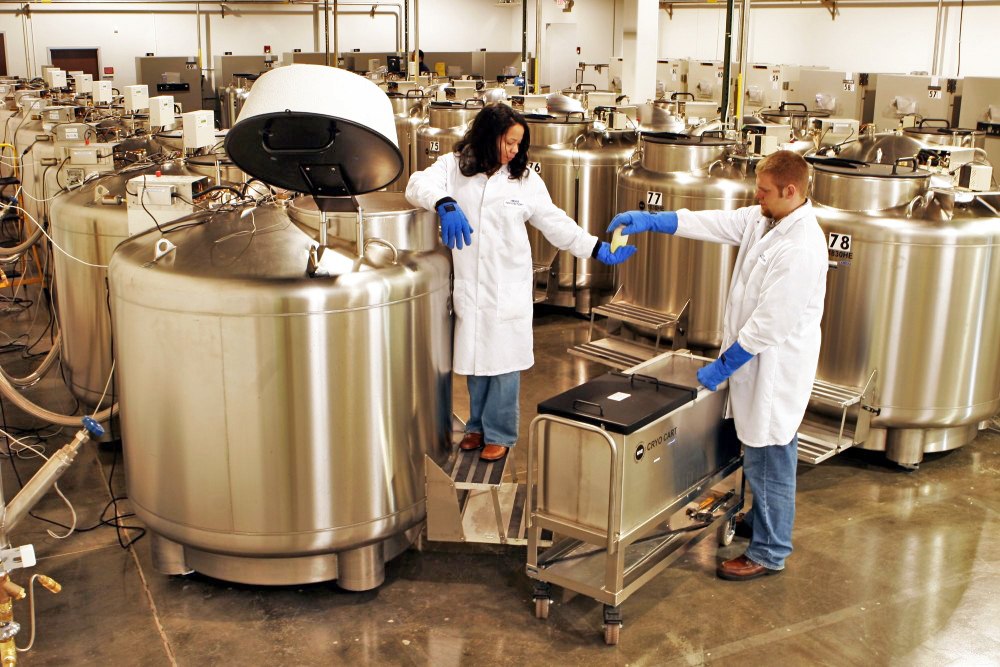In applications where storage temperatures above 150 c are acceptable laboratory personnel have had to accept these tradeoffs between usability and reliability in selecting among conventional mechanical and cryogenic refrigeration.
Liquid nitrogen freezer temperature.
The cellular structure isn t completely destroyed preventing complete lost of moisture.
Liquid nitrogen freezers use liquefied carbon dioxide at 196 to freeze food or ingredients.
Modern vapor phase liquid nitrogen freezers are so well insulated that the sample space temperature is maintained at or below 190 c even if the lid is kept off.
Liquefied gases such as liquid nitrogen and liquid helium are used in many cryogenic applications liquid nitrogen is the most commonly used element in cryogenics and is legally purchasable around the world.
At normal atmospheric pressure nitrogen is a liquid between 63 k and 77 2 k 346 f and 320 44 f.
Liquid nitrogen is very cold.
Below 63 k it freezes into solid nitrogen.
Liquid nitrogen ln 2 is nitrogen in a liquid state at low temperature 195 79 c 77 k.
The temperature of liquid nitrogen is 190 c but the vapor keeps the tank colder than 170 c which is still good enough to keep all of the proteins in these cells completely inactive.
In its basic form a liquid nitrogen freezer is.
Mve stock provides the ultimate in security for the breeding industry and are primarily used to store semen and embryos.
First it would be really expensive but more importantly it isn t necessary.
Each freezer isn t completely filled with liquid nitrogen for a few reasons.
320 f boiling point at sea level it is produced industrially by fractional distillation of liquid air it is a colorless low viscosity liquid that is widely used as a coolant.
However if the liquid nitrogen contacts the cellular formation the content will be damaged and become unusable.
Because liquid nitrogen in a usual setting is boiling its usual temperature is 77 k.
Liquid helium is also commonly used and allows for the lowest attainable temperatures to be reached.









